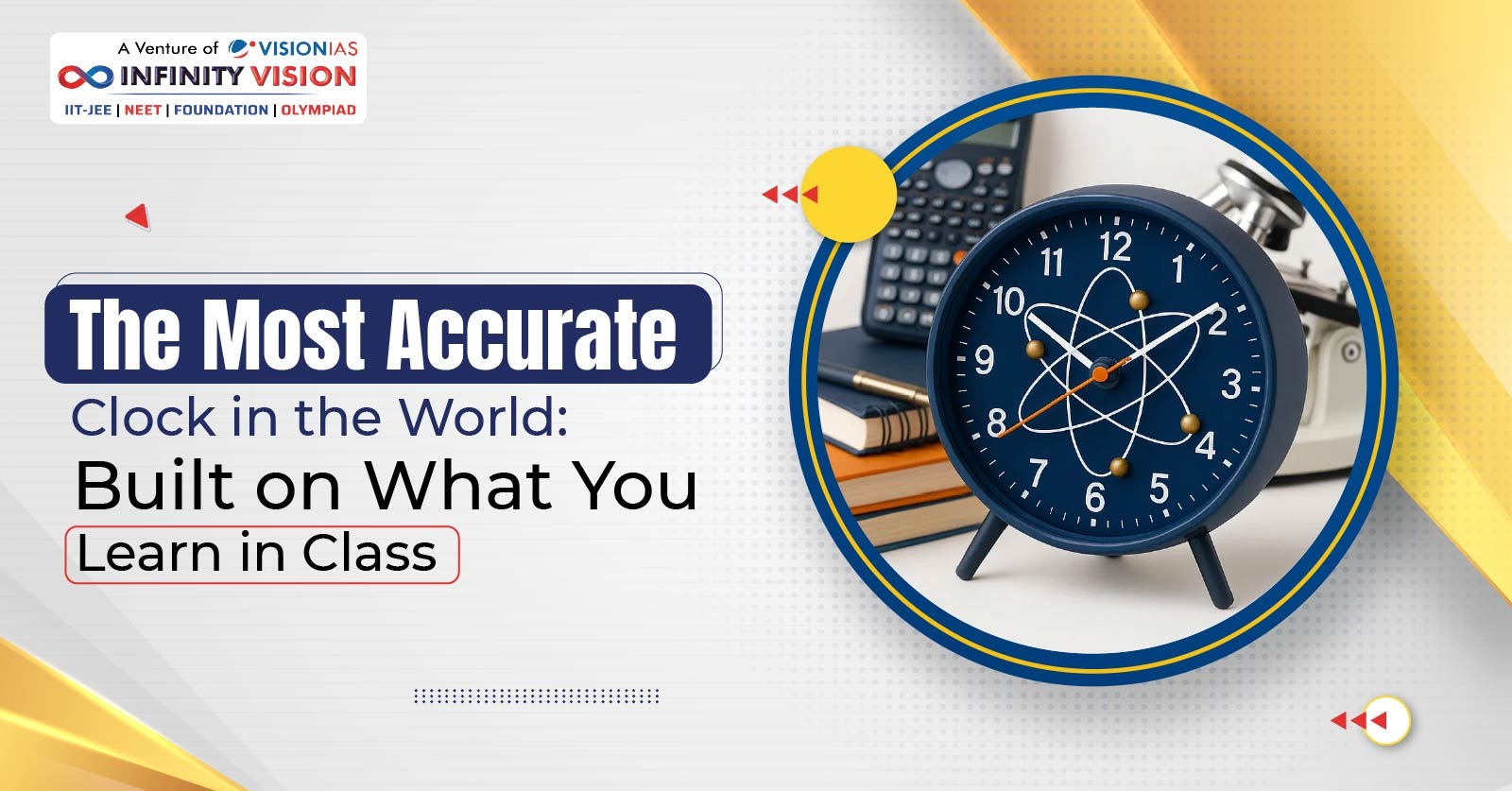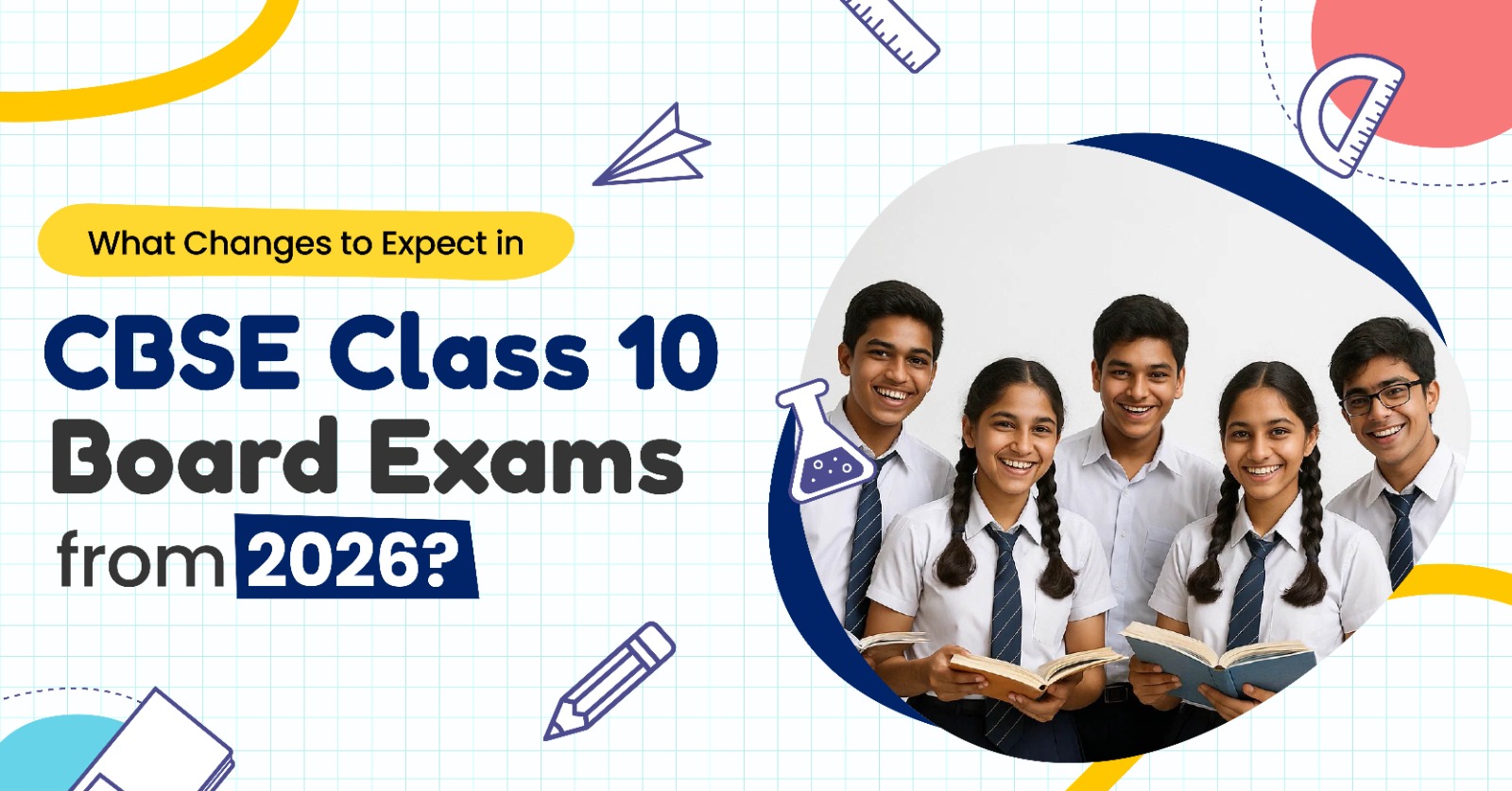At some point in life, almost every student has stepped out of an exam hall thinking, “Oh God, I could have done better if I had one more chance.” It’s a completely natural feeling, especially when you’re young and facing high-pressure exams for the first time. For Class 10 students, board exams mark a major milestone, often their first encounter with such a formal assessment. But instead of being a one-shot, pass-or-fail event, exams should be seen as opportunities to learn, grow, and evolve. Starting in 2026, the Two examinations CBSE Class 10 system will allow students to take their board exams twice, once for the main session and again if they want to improve their scores.
This new approach aims to ease exam stress and give students the space to learn from their experience and bounce back stronger. This blog also covers all the other essential information regarding the two examinations, CBSE Class 10. Continue reading to know more about them. After all, these students are the future minds of India; they deserve a system that supports them, not scares them.
Tentative CBSE Class 10 Board Exam Schedule (2026)
| Exam Phase |
Key Dates |
Details |
| Main Exam |
Starts: 17 Feb 2026 |
Mandatory for all students. Covers full syllabus. |
| Improvement Exam |
5 May – 21 May 2026 |
Optional. Students can reappear in up to 3 subjects. |
| Result (Main) |
By April 2026 |
Interim result for Class 11 admission via DigiLocker. |
| Result (Improvement) |
By 30 June 2026 |
The final mark sheet was issued after this result. |
| Final Certificate |
After 30 June 2026 |
Includes best scores, internal marks, and grades. |
CBSE to Conduct Two Board Exams for Class 10 from 2026
The new two examinations CBSE Class 10 format emphasizes developing core skills rather than rote memorization. This means students’ efforts throughout the year will be recognized. By emphasizing conceptual grasp and allowing two attempts to show what they know, CBSE supports the National Education Policy 2020’s aim for holistic development and learning. Ultimately, these changes are geared toward creating a fairer and more supportive exam environment,
Detailed Changes in the CBSE Class 10 Board Exam System (From 2026)
Here we mention the key highlights of the circular published by CBSE regarding class 10th Board exams 2026:
-
Two Chances to Perform – Best Score Will Be Counted
Every student will now appear for the main exam in February. If they feel they can do better, they’ll have a chance to retake up to three subjects in May. The higher score out of the two attempts will be counted in the final result. This way, students get a second opportunity without any penalty.
-
Practicals and Internal Marks Taken Only Once
Whether you appear once or twice, your practical exam and internal assessment marks (like projects, activities, and lab work) will be recorded during the first attempt. These marks will carry forward to the improvement exam, too; no need to repeat them.
-
Concept-Based and Skill-Focused Question Papers
The exam papers are going to be less about memorising and more about understanding. CBSE is shifting toward competency-based testing, so questions will check how well students understand and apply what they’ve learned. Some papers might include a mix of multiple-choice and descriptive questions.
-
Semester-Like and Modular Exams in the Future
CBSE is also looking at introducing flexible formats like semester exams or smaller module-wise tests in the long term. This means students could be tested soon after learning a topic, rather than everything at once at the end of the year.
-
Subject Levels and Options
In subjects like Maths, CBSE may eventually offer students a choice between Standard and Advanced levels. The idea is to help students study at the pace and level that suits them best.
Registration, Centres, and Exam Dates
The registration process will follow a two-phase model:
- For the first (main) exam in February, schools must submit student details by the end of September. Once submitted, no subject changes are allowed.
- For the second (improvement) exam in May, registration opens right after results from the main exam are declared. Students can opt out, but no new entries will be accepted.
Both the two examinations CBSE Class 10 will be held at the same centres, and there won’t be self-centred. And once CBSE announces the dates, they will remain fixed unless there’s a national holiday.
Exam Fees and Support for Students
The exam fee for both sessions must be paid upfront during registration. It’s important to note that the fee is non-refundable, even if the student doesn’t appear for the second session.
For students with special needs (CWSN), all the existing concessions and support systems will continue. Sportspersons also get flexibility—they can appear in just one of the two sessions. There won’t be a separate board exam for sports categories.
How will Results and Certificates be Issued?
After the February exam, students will get provisional marks through DigiLocker so they can proceed with Class 11 admissions.
The final marksheet will be released after the second session in June. It will show:
- Marks from both attempts
- Internal assessment scores
- Final grades
- The best score among the two attempts
Students who clear all five subjects in either exam will receive a pass certificate. Merit certificates will only be given after the May session.
What Happens If You Don’t Pass?
If a student fails in up to five subjects in the February exam, they can appear in the May exam under the improvement or compartment category. However, if a student fails in three or more subjects, they cannot sit for the second exam. They’ll be marked as “Essential Repeat,” which means they’ll need to repeat Class 10 and take the exam again the following year.
Timeline for CBSE Class 10 Board Exam 2026
Here’s a rough idea of how the exam timeline will look:
- Main Exam: Starts from 17th February 2026 and goes on till early March
- Improvement Exam: Starts on 5th May and ends by 21st May
- Students can reappear in up to three subjects, including Hindi, English, Maths, Science, and Social Science
- The first result will be out in April; the second by 30th June
- Final certificates will be issued after the second result
Keep an eye out for the official CBSE Class 10 board exam date sheet; it should be released a few months before the exams.
Subjects and Rules for CBSE Two Board Exams
Subjects will be grouped as usual:
- Languages: Hindi, English
- Core Subjects: Maths, Science, Social Science
- Regional and Foreign Languages: Urdu, Sanskrit, French, Gujarati, Spanish, and others
- Additional Options: Artificial Intelligence, Data Science, Bookkeeping, Computer Applications, and more
The syllabus remains mostly the same, but CBSE will put more emphasis on competency-based learning, especially in skill-based subjects.
Exam Pattern and Marking Scheme for 2026
The new exam pattern will focus more on real understanding and problem-solving. Here’s how it’ll be structured:
- 40-50% of the questions will be MCQs or competency-based (like case or source-based)
- 30% will be short and long descriptive answers
- Internal assessments (like lab work and projects) will make up 20-30% of your final score
Here’s what it may look like subject-wise:
- Science: 27 questions in two parts, including practical-based questions worth 12 marks
- Social Science: 27 questions, including map work for History and Geography
Maths: 30 questions with a mix of 1 to 4-mark problems
- English: Divided into Reading, Writing & Grammar, and Literature sections
- Hindi: Includes comprehension, grammar, textbook-based questions, and writing
Adapting to the New CBSE Class 10 Pattern
The revised CBSE Class 10 exam pattern is more than a structural shift. The two-exam system demands consistent effort across the year, allowing students to improve scores in specific subjects without repeating the entire board. This also means that early identification of weak areas and targeted improvement becomes crucial. Moreover, cross-topic integration in question papers highlights the need for conceptual clarity rather than isolated topic knowledge. If you are looking for ways to boost your studies after this summer break, you may visit are blog – 5 Tips to Kick-Start Your Studies After Summer Break.











